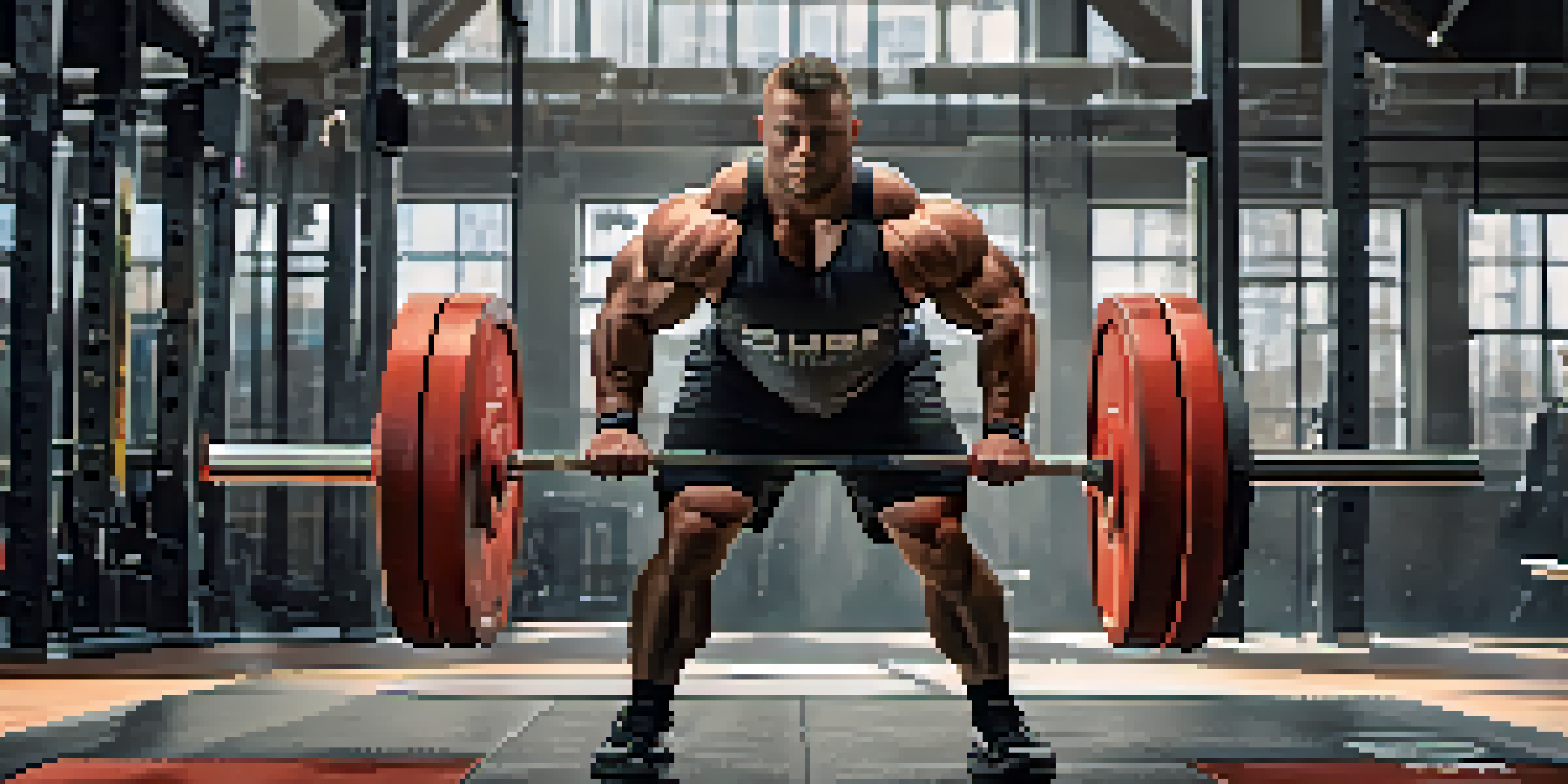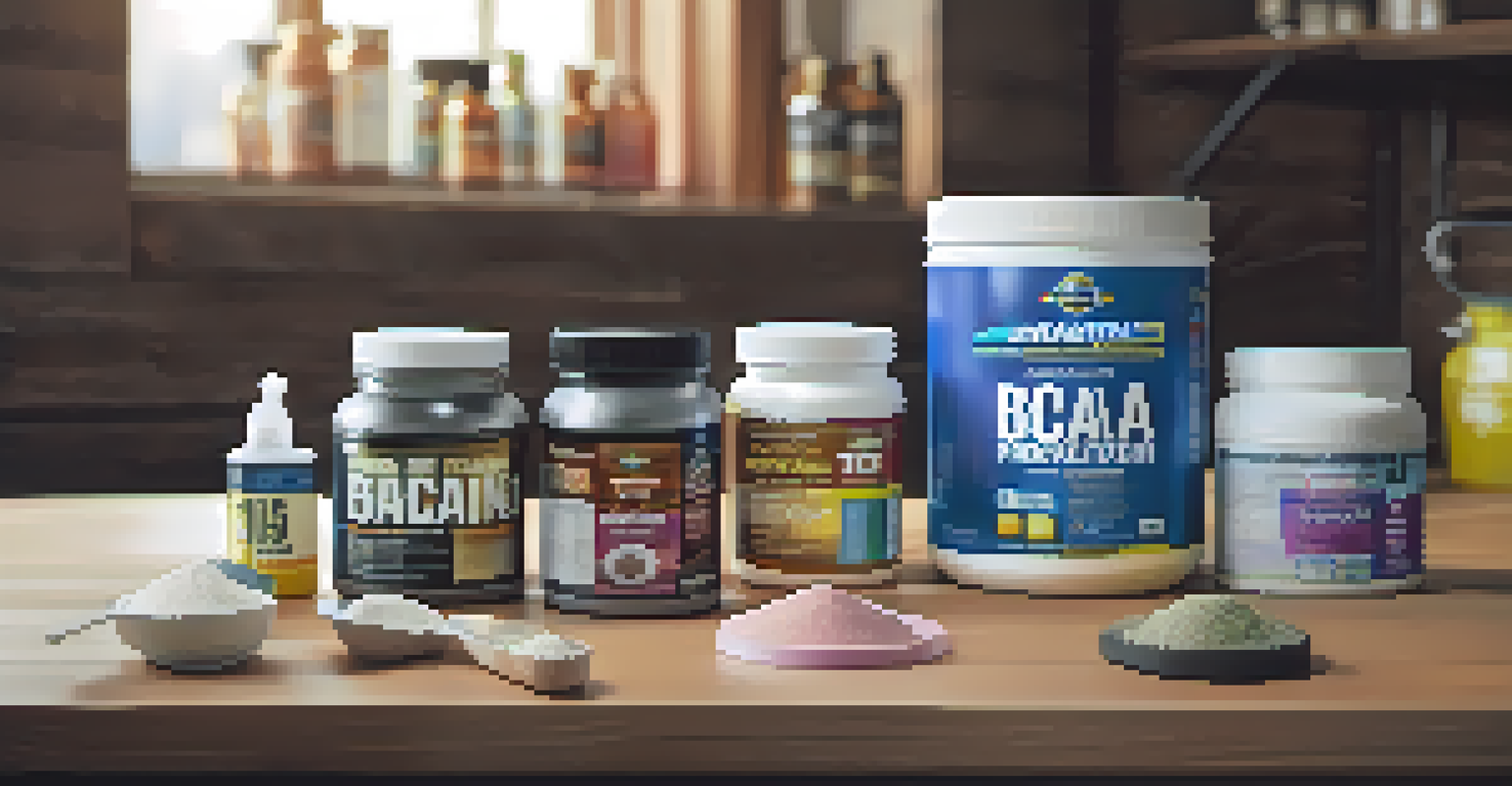Supplements: Do They Really Boost Powerlifting Performance?

Understanding Powerlifting: The Basics
Powerlifting is a strength sport focused on three main lifts: the squat, bench press, and deadlift. Unlike bodybuilding, the goal here isn't aesthetics but maximizing strength in these specific movements. Each lift is performed for a single rep, and lifters aim to lift as much weight as possible. Understanding this foundation is crucial, as it sets the stage for how supplements may fit into a powerlifter's regimen.
The mind is everything. What you think you become.
The sport demands not only physical strength but also strategic training and nutrition. Lifters must balance their diet, training volume, and recovery to achieve peak performance. This is where supplements often come into play, promising enhanced strength, endurance, and recovery. However, it's essential to approach these claims with a critical mindset.
While some supplements can support powerlifting goals, it's important to remember that they are not magic solutions. A well-rounded diet and consistent training are the cornerstones of success in powerlifting. Supplements should be viewed as potential additions to an already solid foundation.
Common Supplements Used in Powerlifting
Among the most popular supplements for powerlifters are creatine, protein powders, and branched-chain amino acids (BCAAs). Creatine is well-known for its ability to enhance strength and power output during high-intensity efforts. It works by increasing the availability of ATP, the energy currency in our muscles, allowing for more reps or heavier lifts.

Protein powders serve as a convenient way to ensure that powerlifters meet their daily protein needs, which are crucial for muscle repair and growth. Whether it's whey, casein, or plant-based options, these supplements help support recovery after intense training sessions. The right amount of protein can make a significant difference in performance over time.
Powerlifting Focuses on Strength
Powerlifting is centered around maximizing strength through three key lifts: squat, bench press, and deadlift.
BCAAs, on the other hand, may help reduce muscle soreness and speed up recovery, allowing lifters to train more frequently. While the evidence is mixed on their effectiveness, many lifters swear by their benefits, particularly during intense training cycles. Understanding these supplements can help powerlifters make informed choices about what to include in their regimen.
The Role of Nutrition in Powerlifting Performance
Before diving into supplements, it's vital to recognize the importance of a balanced diet. Nutrition provides the essential nutrients needed for energy, recovery, and overall performance. A powerlifter's diet typically emphasizes protein, carbohydrates, and healthy fats to fuel their workouts and support muscle growth.
Success is the sum of small efforts, repeated day in and day out.
Carbohydrates are particularly important, as they serve as the primary energy source during high-intensity training. Without adequate carbs, lifters may experience fatigue and decreased performance. Thus, focusing on whole foods—like fruits, vegetables, grains, and lean meats—should be the foundation of any powerlifting diet.
Supplements can fill in the gaps when dietary intake isn't enough, but they should never replace whole foods. By prioritizing nutrition, powerlifters can optimize their performance and recovery, ensuring that any supplements used can be most effective.
Do Supplements Really Deliver Results?
The effectiveness of supplements can vary significantly from person to person. While some may experience noticeable improvements in strength and recovery, others might not see the same results. This variability often stems from individual differences in metabolism, training intensity, and diet.
Scientific research does support the use of certain supplements, like creatine and protein, for enhancing performance. However, it's essential to approach these findings with a balanced perspective. Just because a supplement works for one athlete doesn't guarantee it will work for everyone.
Nutrition is Crucial for Success
A balanced diet rich in protein, carbohydrates, and healthy fats is essential for optimizing performance and recovery in powerlifting.
Ultimately, the key to success lies in a holistic approach that includes proper training, nutrition, and recovery strategies. Supplements can complement this approach, but they should not be relied upon as the sole solution for performance enhancement.
Potential Risks and Side Effects of Supplements
While many supplements are generally considered safe, they can come with potential risks and side effects. Some individuals may experience digestive issues, allergic reactions, or interactions with medications. It's crucial for powerlifters to be aware of these possibilities before incorporating new supplements into their routine.
Additionally, the supplement industry is not as tightly regulated as pharmaceuticals, which means product quality can vary. Some products may contain contaminants or not contain the advertised ingredients. This makes it essential for lifters to choose reputable brands and consult with healthcare professionals when necessary.
By being cautious and informed, powerlifters can minimize risks while exploring the benefits of supplements. Understanding both the potential rewards and dangers can help athletes make better choices that align with their health and performance goals.
The Importance of Individualized Supplementation
Every powerlifter is unique, and so are their bodies' nutritional needs and responses to supplements. This individuality means that what works for one person may not work for another. Tailoring supplementation to fit personal goals, lifestyle, and training demands is essential for optimizing performance.
Consulting with a nutritionist or dietitian can provide valuable insights into which supplements may be beneficial. They can help assess dietary intake, identify deficiencies, and recommend specific products that align with overall fitness goals. This personalized approach can enhance the effectiveness of supplementation.
Individualized Supplementation Matters
Tailoring supplements to fit personal goals and needs, with guidance from professionals, can enhance a powerlifter's performance.
Moreover, keeping a training log and noting how different supplements affect performance can provide useful feedback. This ongoing evaluation can help powerlifters adjust their supplementation strategies based on real-time results, ensuring that they are continually optimizing their approach.
Final Thoughts on Supplements and Powerlifting
In conclusion, while supplements can play a role in enhancing powerlifting performance, they should not be viewed as a magic bullet. A solid foundation of training, nutrition, and recovery is paramount for success in this sport. Supplements may offer additional benefits, but they should complement, not replace, these core elements.
It's vital for powerlifters to approach supplementation thoughtfully and with a critical mindset. Researching products, consulting with professionals, and listening to one's body are all important steps in this process. By doing so, athletes can make informed decisions that align with their personal goals and health.

Ultimately, powerlifting is about pushing personal limits and achieving strength goals. Supplements can help along the way, but the journey is deeply rooted in dedication, hard work, and a comprehensive approach to training and nutrition.